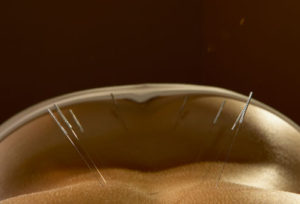Acupuncture and Infertility
Acupuncture can be used to boost both female and male infertility. For female infertility, it can be used on its own, in conjunction with herbal medicine or along with western medicine such as IVF and other assisted reproductive treatments. For male infertility, both acupuncture on its own or with herbal remedies can be beneficial.
How does acupuncture work to boost fertility
Acupuncture regulates hormone function. It increases blood supply to the ovaries and uterus and helps relax muscles which can improve the chances of the embryo implanting. Acupuncture works on the causes of Polycystic ovarian syndrome (PCOS) and treats the symptoms, a common cause of infertility in women. Acupuncture generally helps stress and aids relaxation.
“In a study of 160 women, published in the reproductive journal Fertility and Sterility, a group of German researchers found that adding acupuncture to the traditional IVF treatment protocols substantially increased pregnancy success.”
Traditional Chinese medicine treatment for female and male infertility
When used in conjunction with western fertility treatments, acupuncture increased conception rates by 26%. A recent study from Tel Aviv University reports ” when combining IUI with traditional Chinese medicine treatments, 65.5% of the test group were able to conceive, compared with 39.4% of the control group, who received no herbal or acupuncture therapy.” For the 4.5 million couples experiencing infertility each year, acupuncture may be just what the doctor ordered.
Acupuncture can increase fertility by reducing stress, increasing blood flow to the reproductive organs and balancing the endocrine system. The goal of an infertility treatment from a Chinese medicine perspective is not just to get pregnant, but to stay pregnant and have a healthy baby.
Acupuncture can provide better blood flow to the ovaries and uterus, creating a stronger chance for the egg to be nourished and carried to term.
40% of infertility is caused by problems in the female, another 40% by problems in the male, such as low sperm count or motility. The remaining 20% is unknown factors.
Acupuncture works to reduce stress, a contributory factor in both female and male infertility. When people are under stress, the hormone cortisol is released in the brain. This alters the brain’s neurochemical balance, changes hormone levels and upsets the pituitary balance that is a key to the reproductive cycle.
Due to the balance between the hypothalamus, pituitary and reproductive glands, stress can adversely affect ovulation, it can also cause spasms in the Fallopian tubes and uterus, which can interfere with implantation of the fertilized egg. In men, stress can reduce sperm count and motility and cause impotence. Both acupuncture and herbal medicine can reduce stress by reducing cortisol levels and by releasing endorphins, this can help in both female and male infertility.
Infertility can also be caused by an imbalance in reproductive hormones. In women, high levels of prolactin can prevent ovulation and reduced levels of progesterone reduces the ability of the fetus to attach to the uterus. Low testosterone in men can reduce sperm motility and production and cause erectile dysfunction.
Acupuncture and herbal medicine can stimulate the hypothalamus to balance the endocrine system and its hormones.
Research shows that acupuncture can significantly improve the quality and health of sperm. In a study published in Fertility and Sterility in 2005, researchers analyzed sperm samples from men with infertility of unknown cause before and after acupuncture treatment. They found that men who had acupuncture treatment had fewer structural defects in the sperm and increased numbers of normal sperm.
Acupuncture in conjunction with western medical treatment
Many women use acupuncture to boost their chances of IVF, IUI and other western medical treatments for infertility such as the drug Clomid, working. Acupuncture can begin at any time during fertility treatment, before starting to take any oral or injectable drugs to help prepare the body, during the drug treatment to help deal with side effects such as nausea, moodiness and fatigue and to boost the effects of the drugs and also during IVF cycles.
I treat many women and men for infertility and have helped many couples conceive. Some I treat with acupuncture or acupuncture and Chinese herbal medicine who choose not to have western medicine intervention to regulate their menstrual cycle, restart ovulation, treat PCOS, unblock fallopian tubes etc. and men to increase sperm count and quality. I also treat many women before and during IVF cycles to improve the chances of it working, a number have had unsuccessful cycles before who then go on to get pregnant when they combine acupuncture with the IVF. I have had many cards, thank you letters and photographs of beautiful babies after successful acupuncture and herbal treatments.


